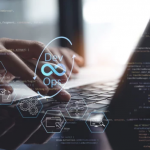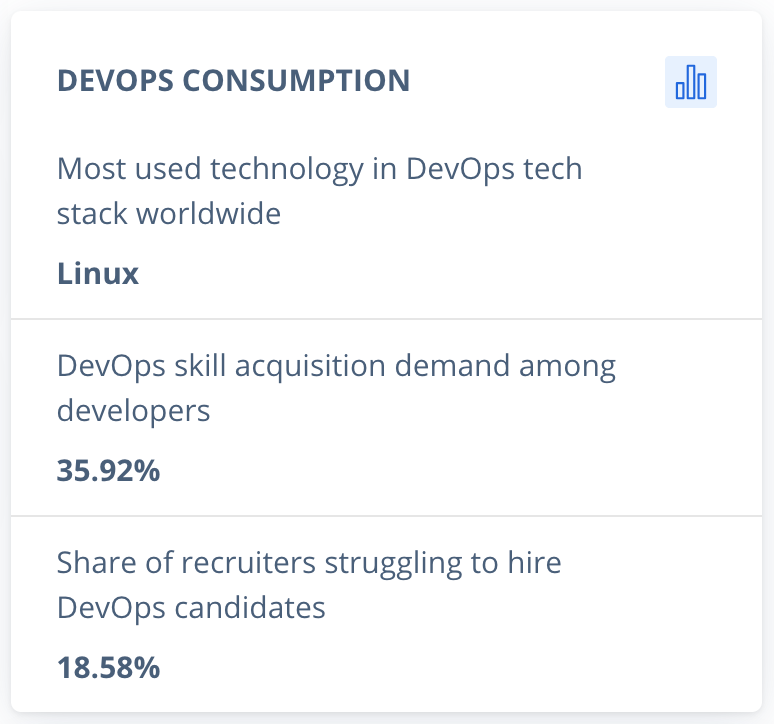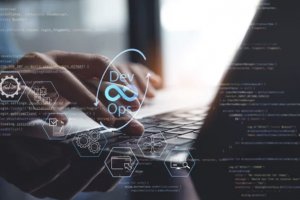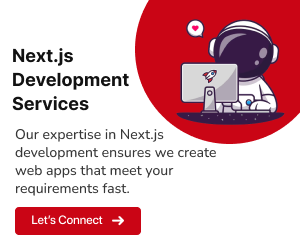Introduction
In the rapidly evolving landscape of modern technology, the role of DevOps (Development and Operations) has become instrumental in driving innovation, efficiency, and competitiveness for businesses in the United States. To furthermore harness the full potential of DevOps, organizations must strategically build high-performing DevOps teams capable of delivering superior results. This guide will take you through the strategic hiring process, helping you assemble a DevOps dream team that propels your business forward.
Defining the DevOps Dream Team

A high-performing DevOps team is composed of individuals with distinct yet complementary skill sets. Here are the key roles that form the foundation of a DevOps dream team:
DevOps Engineers:
These professionals are the architects of the DevOps pipeline, responsible for automation, continuous integration, and furthermore ensuring the seamless flow of code from development to production.Software Developers:
Developers are responsible for writing code, creating applications, and ensuring that software aligns with business objectives. In DevOps, they also collaborate closely with operations teams.System Administrators:
System administrators manage and maintain the IT infrastructure, ensuring it is reliable, secure, and scalable. Their expertise is also critical for smooth operations.Quality Assurance Specialists:
QA specialists focus on testing software to identify bugs and ensure quality. Their role is also integral to delivering reliable software products.
Identifying Your Organization’s Needs
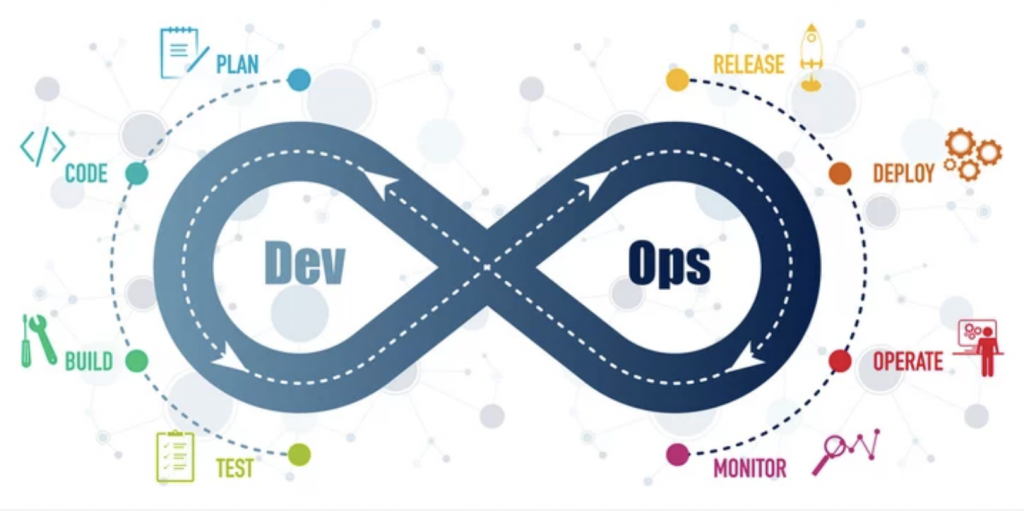
Assessing Your Current DevOps Capabilities
Begin by assessing your organization’s current DevOps capabilities. Identify strengths, weaknesses, and areas for improvement. This evaluation also serves as a starting point for building your dream team.Setting Clear Objectives and Goals
Clearly define your organization’s objectives and goals for DevOps adoption. Are you aiming for faster releases, improved reliability, or enhanced collaboration? Your goals will shape your hiring strategy.Defining Your DevOps Roadmap
Create a roadmap that outlines the specific steps and milestones for achieving your DevOps goals. This roadmap guides your hiring process, indicating when and where new team members are needed.Aligning DevOps with Business Goals
Ensure that your DevOps objectives align with broader business goals. A high-performing DevOps team should also be a strategic asset that directly contributes to your organization’s success.
The Hiring Process

Crafting Compelling Job Descriptions
Craft job descriptions that clearly outline roles, responsibilities, and expectations. Furthermore highlight the importance of collaboration, problem-solving, and continuous improvement in your DevOps culture.Screening and Interviewing Candidates
Implement a thorough screening and interview process. Assess technical skills, but also focus on cultural fit. DevOps requires teamwork, adaptability, and a passion for learning.Evaluating Technical Skills and Cultural Fit
Technical skills are vital, but cultural fit is equally important. DevOps thrives on collaboration and a shared commitment to success. Ensure candidates align with your team’s culture and values.Leveraging Behavioral Interviews
Behavioral interviews uncover a candidate’s problem-solving abilities, adaptability, and teamwork. Also ask questions that prompt candidates to share real-world experiences that demonstrate their qualifications.The Art of Onboarding
Effective onboarding is crucial for integrating new team members smoothly. Provide comprehensive training, introduce them to existing team members, and also familiarize them with your organization’s DevOps practices and tools.
Qualities to Consider in a DevOps Engineer
The ideal DevOps engineer possesses a unique blend of technical prowess and soft skills. Beyond technical expertise, look for individuals with exceptional problem-solving abilities, adaptability, and effective communication skills. This combination ensures that they can not only navigate complex technical landscapes but also collaborate seamlessly with cross-functional teams.

In the intricate realm of software development and operations, the role of a DevOps engineer holds paramount importance. DevOps engineers are the architects behind the seamless integration of development and IT operations, ensuring the rapid delivery of high-quality software. When seeking to hire a DevOps engineer, several key qualities come into play, making the selection process a critical step towards successful implementation. Below are some essential qualities to consider:
1. Technical Expertise and Problem-Solving Skills:
A top-tier DevOps engineer possesses a deep understanding of various programming languages, automation tools, and cloud technologies. This technical prowess enables them to create and manage automated deployment pipelines, configure infrastructure as code, and troubleshoot complex issues effectively. Their ability to analyze and resolve intricate technical challenges ensures the reliability and also stability of the software delivery process.
2. Collaboration and Communication Skills: DevOps is fundamentally about collaboration between development, operations, and QA teams also. Effective communication skills are indispensable for a DevOps engineer to bridge gaps between these groups. Clear and concise communication fosters understanding and cooperation, also ultimately resulting in smoother development cycles and timely software releases.
3. Continuous Learning and Adaptability: Furthermore the technology landscape is in a constant state of flux, with new tools and methodologies emerging regularly. A proficient DevOps engineer stays up-to-date with the latest trends, actively seeks out new tools, and adapts their approach as needed. This commitment to continuous learning furthermore ensures that the organization remains competitive and capable of leveraging cutting-edge practices.
4. Automation Mindset: Automation lies at the heart of DevOps. An adept DevOps engineer strives to automate routine tasks, enabling the team to focus on more strategic initiatives. This mindset not only speeds up processes but also minimizes human error, leading to consistent and predictable outcomes.
Successful Hiring Process for DevOps Engineers
Crafting a successful hiring process is a multifaceted endeavor that involves strategic planning and careful execution. Start by defining your project requirements, setting clear expectations for the role and responsibilities. Determine your budget and also the project duration to align with market rates and your business goals. Choose the right hiring model – full-time, part-time, contract, or hybrid – that furthermore suits your specific needs.
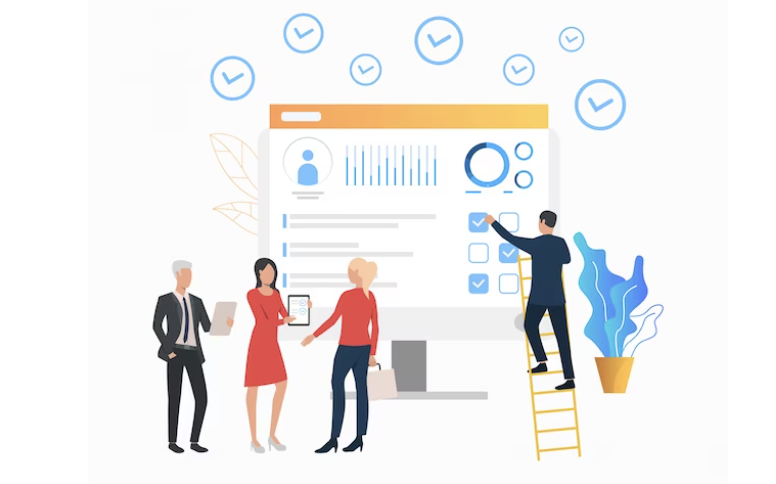
Hiring DevOps engineers requires a strategic approach to ensure that the selected candidates possess the necessary skills and qualities for effective software development and operations integration. Here is a tailored hiring process designed to attract, evaluate, and also select the best DevOps talent:
1. Job Description Crafting: Begin by crafting a comprehensive and accurate job description that outlines the role’s responsibilities, expectations, and required qualifications. Highlight the organization’s commitment to DevOps practices and its impact on the software development lifecycle. This description also serves as the first point of contact for potential candidates.
2. Skill Assessment and Screening: Create an initial screening phase where candidates submit their resumes or applications. To streamline the screening process, include specific questions that gauge their technical expertise, relevant experience, and alignment with DevOps principles. This phase also helps shortlist candidates who meet the basic qualifications.
3. Technical Evaluation: Conduct technical assessments or coding challenges that mirror real-world DevOps scenarios. These evaluations should assess candidates’ ability to write automation scripts, manage infrastructure as code, and also troubleshoot common problems. Consider using platforms that also allow candidates to showcase their practical skills.
4. Behavioral and Soft Skills Interviews: The next step involves conducting interviews to evaluate candidates’ soft skills, problem-solving abilities, teamwork, and communication. DevOps engineers interact closely with various teams, so their interpersonal skills are crucial. Present hypothetical scenarios to gauge their approach to collaboration and conflict resolution.
5. Practical Scenario Assessment: Pose real-world scenarios that DevOps engineers are likely to encounter in their role. Ask candidates to propose solutions for scaling infrastructure, handling system failures, and furthermore optimizing performance. This assessment reveals their ability to apply DevOps concepts practically.

Nurturing a High-Performing DevOps Culture
Fostering Collaboration and Communication
Creating a high-performing DevOps culture begins with fostering collaboration and open communication among team members. Encourage regular meetings, cross-functional discussions, and a shared sense of purpose. Collaboration tools and platforms can also facilitate seamless communication.Embracing Automation and Continuous Improvement
Automation is a fundamental pillar of DevOps. Encourage your team to automate repetitive tasks, from code integration to deployment. Emphasize the importance of continuous improvement; use retrospectives to identify areas for enhancement and also implement iterative changes.Promoting a Culture of Learning and Experimentation
DevOps is about continuous learning and experimentation. Encourage team members to also stay updated on industry trends and emerging technologies. Create a safe environment where experimentation is encouraged, and learning from failures is celebrated.Recognizing and Rewarding Achievements
Acknowledge and reward achievements within your DevOps team. Recognition can be a powerful motivator for team members, fostering a sense of pride and accomplishment. This recognition furthermore can take the form of promotions, bonuses, or simply public appreciation.
Key Performance Indicators (KPIs) for DevOps Teams
Measuring the performance and success of your DevOps team is essential for continuous improvement. Key performance indicators (KPIs) to consider include:
- Deployment Frequency: How often code is deployed.
- Lead Time for Changes: The time it takes to implement changes.
- Mean Time to Recover (MTTR): The time it takes to recover from incidents.
- Change Failure Rate: The rate at which changes result in failures.
- User Satisfaction: User feedback and satisfaction scores.
Remote DevOps Engineer Hiring
Source: Statista
To ensure the success of remote DevOps engineer hiring, certain factors should be taken into account. Firstly, clearly define the roles, responsibilities, and expectations for remote team members. This includes outlining project objectives, deliverables, and communication channels to facilitate smooth collaboration. Secondly, utilize comprehensive interview processes to assess technical skills, cultural fit, and remote work capabilities. Also practical assessments and scenario-based questions can provide insights into a candidate’s problem-solving abilities and adaptability.
Thirdly, invest in robust communication tools and platforms. Remote DevOps engineers need seamless access to video conferencing, instant messaging, and project management tools to stay connected with the team and ensure clear communication. Fourthly, establish a structured onboarding process that familiarizes remote hires with the organization’s culture, processes, and tools. Assign a mentor or buddy to guide them through their initial remote work experience.
Also read: How much does it cost to hire a DevOps Service company in the US
Where to Hire DevOps Engineers in USA?
1. Geekyants

Research. Collaborate. Build.
GeekyAnts is a design and development studio that specializes in building solutions for web and mobile that drive innovation and transform industries and lives. We hold expertise in state-of-the-art technologies like Next.js, React Native, Flutter, Node, GraphQL and more.
Visit Website
- Team Size: 250 – 999
- Hourly Rate: $25 – $49
- Location: California, USA
- Average Review Rating: 4.9
- Service Lines: Mobile App Development (50%), Web Development (40%), UX/UI Design (10%)
- Clients: Enterprise (>$1B) (60%), Midmarket ($10M – $1B) (30%), Small Business (<$10M) (10%)
- Application Platforms: Amazon (30%), Google app engine (25%), Heroku (25%), Azure Platform (20%)
Contact Us
2. Algoworks
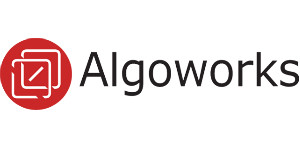
Simplifying technology. Smartly. Disruptively. Globally.
Algoworks is a trusted DevOps consulting company renowned for its comprehensive suite of services. With expertise in automation, integration, and development, they enable businesses to optimize their operations effectively. Their experienced team crafts tailor-made solutions, ensuring a seamless transition to DevOps methodologies. Visit their website for more information.
Visit Website
- Team Size: 500-1k
- Hourly Rate: $25 – $49
- Location: California, USA
- Average Review Rating: 4.7
- Service Lines: Mobile App Development (80%), CRM Consulting and SI (20%)
- Mobile Focus: Games (65%), Other enterprise apps (25%), Social (10%)
- Clients: Enterprise (>$1B) (50%), Midmarket ($10M – $1B) (40%), Small Business (<$10M) (10%)
Contact Us
3. XenonStack

A Stack Innovator
XenonStack specializes in product engineering and technology services, offering advanced digital enterprise solutions. Leveraging DevOps, Big Data Engineering, Data Analytics, and more, they empower businesses to transform their operations and harness the potential of data assets. Their expertise in cloud consulting, including AWS, Google Cloud, and Azure, makes them a preferred DevOps consultancy.
Visit Website
- Team Size: 10-250
- Hourly Rate: $25 – $49
- Location: California, USA
- Average Review Rating: 4.5
- Service Lines: BI & Big Data Consulting & SI (25%), Cloud Consulting & SI (25%), AI Development (15%), IT Managed Services (15%), Cybersecurity (10%), Enterprise App Modernization (10%)
- Clients: Midmarket ($10M – $1B) (55%), Enterprise (>$1B) (25%), Small Business (<$10M) (20%)
- Cloud Computing Focus: Natural Language Processing (35%), Machine Learning (30%), Cognitive Computing (20%), Chatbots & Conversational AI (15%)
Contact Us
4. Contus

Gateway of Digital
Contus is a premier USA-based DevOps company that excels in providing innovative solutions. Their adept team harnesses cutting-edge technology to enhance development and operations, ensuring accelerated product delivery. With a client-centric approach, they furthermore tailor DevOps strategies to individual business needs, showcasing wide-ranging expertise across various industries.
Visit Website
- Team Size: 250-500
- Hourly Rate: $25 – $49
- Location: Atlanta, USA
- Average Review Rating: 4.2
- Service Lines: IoT Development (30%), Mobile App Development (20%), Web Development (20%), AR/VR Development (10%), Custom Software Development (10%), Wearable App Development (10%)
- Cloud Computing Focus: AWS (100%)
- Clients: Midmarket ($10M – $1B) (50%), Small Business (<$10M) (30%), Enterprise (>$1B) (20%)
Contact Us
5. Mission Cloud

Accelerate your business and achieve your goals
Mission Cloud is dedicated to providing cloud-based DevOps solutions that empower businesses in the digital age. They furthermore help organizations embrace agile methodologies and automate software delivery pipelines, driving efficiency and innovation. With certified DevOps engineers and a deep understanding of cloud platforms like AWS, Azure, and GCP, Mission Cloud stands out as a leader in the field.
Visit Website
- Team Size: 10-250
- Hourly Rate: $100 – $199
- Location: Los Angeles, USA
- Average Review Rating: 3.9
- Service Lines: Cloud Consulting & SI (25%), AI Development (20%), IT Managed Services (20%), IT Strategy Consulting (20%), BI & Big Data Consulting & SI (15%)
- Cloud Computing Focus: Machine Learning (100%), Chatbots & Conversational AI (30%), Cognitive Computing (30%)
- Clients: Midmarket ($10M – $1B) (50%), Small Business (<$10M) (30%), Enterprise (>$1B) (20%)
Contact Us
Whether you’re looking to optimize your IT operations, transform your business processes, or enhance development and delivery, furthermore these top DevOps consulting companies in the USA have the expertise to meet your needs. By leveraging their cutting-edge solutions, comprehensive knowledge, and proven track records, you can navigate the complex landscape of modern technology with confidence. DevOps has become an essential paradigm in achieving operational excellence and accelerating digital transformation. The specialized services offered by these companies span a wide range of industries and requirements, also ensuring that your organization can effectively implement DevOps methodologies that fit your unique challenges.
Also read: Top 10 DevOps Service Companies in the USA
Conclusion
Building a high-performing DevOps team is not a one-time effort but an ongoing journey of strategic hiring, nurturing a culture of collaboration and innovation, and measuring success. DevOps has become a cornerstone of modern business success, and your team plays a pivotal role in realizing its potential. As technology and business needs evolve, so will DevOps practices. Embrace this evolution, stay open to new tools and methodologies, and continue investing in your DevOps team’s growth and development. Also, with the insights and strategies outlined in this guide, you’re well-equipped to take the first steps toward strategic hiring for your DevOps dream team. Your organization’s success in the digital age hinges on the ability to adapt, innovate, and collaborate effectively, and your DevOps team is at the heart of this transformation.






